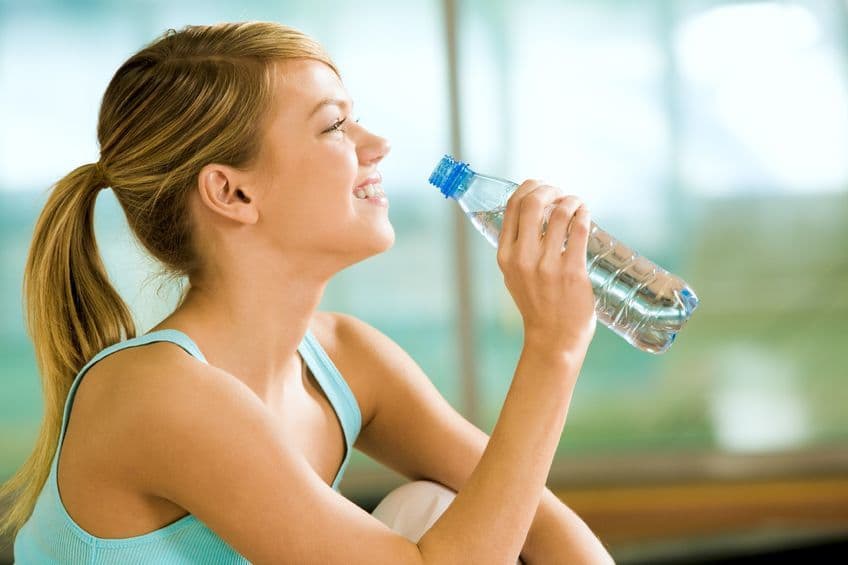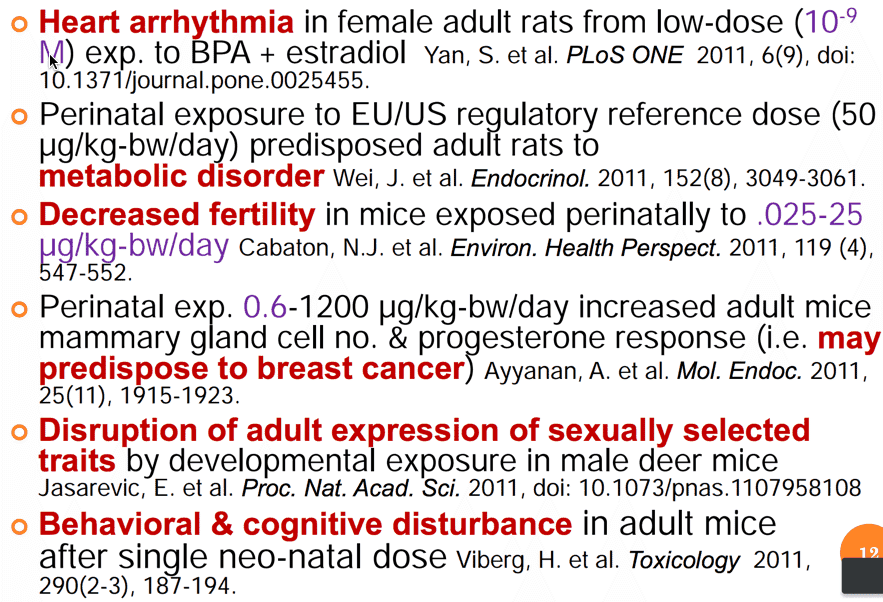
BPA and BPS are found in virtually all plastic containers of every sort.
“BPA can leach into food and beverages, particularly under heat, from cans, baby bottles, food-storage containers and plastic tableware. It can also be found in contact lenses, eyeglass lenses, compact discs, water-supply pipes, cash register and ATM receipts, and dental sealants and composites. One study published in 2010 projected that by 2015, the U.S. and Europe would be manufacturing more than 5 million tons of products containing BPA per year.”
And it turns out that the so-called safe replacement for BPA, BPS, is as dangerous as BPA, perhaps more so.
Both BPA and BPS are very unsafe
One of the researchers working on the safety of BPA and BPS, Dr. Nancy Wayne of UCLA, said
“I advise people to avoid plastic whenever it’s in your control to do so. I changed my behavior in 2007, when I first saw the results from our earlier work on the effects of BPA on early embryonic development. I threw out all plastic containers used for storing food. Ever since, I have been storing food in glass containers. Glass, stainless steel, and ceramic (make sure there’s no lead in the glaze) are good alternatives.”
We’ve got a whole lot of studies showing the bad effects of BPA.
So the industry changed to BPS, which is almost the same thing, and certainly is bad.
Here are some of the BPA studies, and this is just a small number of them:
 It turns out that BPS, the so-called safe replacement for BPA, disrupts the estrogen signaling system and has serious consequences even in tiny, tiny quantities
It turns out that BPS, the so-called safe replacement for BPA, disrupts the estrogen signaling system and has serious consequences even in tiny, tiny quantities
 The quantities required for some of these changes are in trillions of a gram. Tiny, tiny amounts have major effects.
The quantities required for some of these changes are in trillions of a gram. Tiny, tiny amounts have major effects.
Dr. Wayne’s study showed that
BPA-free products are not necessarily safer.
What to do now
It is quite evident that BPA and BPS both mess with estrogen levels, mimic estrogen and may damage the entire male and female reproductive health system even if the plastic compounds are in tiny, tiny quantities.
Almost everybody has some detectable levels of BPA or BPS in their urine, and these levels have been shown to be enough to cause damage.
Throw away all your plastic in the kitchen. Don’t use plastic utensils, don’t use those nonstick pans that have a plastic coating on them, don’t use plastic to store food. Use ceramic or glass.
Don’t drink from plastic drinking bottles either.
This will help you lower the amount of BPA and BPS in your system and help protect you from this problem.
Citations
Bisphenol S Disrupts Estradiol-Induced Nongenomic Signaling in a Rat Pituitary Cell Line: Effects on Cell Functions
http://ehp.niehs.nih.gov/1205826/?utm_source=rss&utm_medium=rss&utm_campaign=1205826
Presentation on BPA
https://dtsc.ca.gov/ECL/upload/ECL_Presentation_Bisphenol-A_Diet.pdf
Chemical used to replace BPA in plastic accelerates embryonic development, disrupts reproductive system
https://www.uclahealth.org/news/chemical-used-to-replace-bpa-in-plastic-accelerates-embryonic-development-disrupts-reproductive-system
Click for more information on BPA in plastic, for information on Diet & Exercise, or for more on Effects of BPA.
